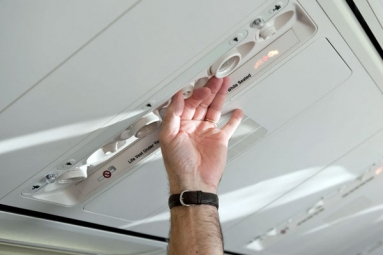What is Motion Sickness and how to prevent Vomiting during Travel?
February 13, 2025 18:59
(Image source from: Canva.com)
When traveling by bus or car, it is not uncommon for someone in the group to suffer from motion sickness. For individuals who become ill during the ride, the experience can become quite debilitating. Even though they remain fully aware, their body and mind often feel unsettled. This condition is particularly prevalent among children, but it can affect adults as well. Motion sickness can also arise during journeys by boat or airplane, not just in vehicles. While many people find that symptoms lessen with age, some continue to experience dizziness. This ailment not only detracts from the pleasure of travel but also leads to significant discomfort. Fortunately, there are strategies to minimize the likelihood of vomiting during trips. Medically, this issue is referred to as motion sickness. It drains energy from the body, leading to sensations of nausea or vomiting. The underlying cause of motion sickness is a mismatch between the body’s signals and the brain’s interpretations. The body senses movement, yet the brain and eyes struggle to align with those sensations, resulting in feelings of dizziness and queasiness.
For instance, when one attempts to read or looks downward while traveling, the eyes may fail to provide a consistent visual input, leading to confusion for the brain. The risk of nausea increases when the vehicle encounters bumpy roads, makes sharp turns, or comes to abrupt stops. Several techniques can help reduce the chances of vomiting during travel. A person susceptible to motion sickness should aim to sit in the front seat of a car, preferably by a window. For boat travel, securing a seat in the middle is best. On a train, it is advisable to face forward in the direction of movement. It is also wise to avoid heavy meals before embarking on a journey, instead choosing light and healthy options, and refrain from eating just prior to departure. Engaging in conversations, listening to music, or participating in mental games can aid in distracting the mind and alleviating feelings of nausea.
To combat vomiting while traveling, healthcare professionals may recommend antihistamines. However, such medications should only be taken after consulting a physician, as the appropriate choice will vary based on individual circumstances. Commonly suggested medications include dimenhydrinate (known as Dramamine) or diphenhydramine (commonly called Benadryl). It is important to note that improper dosages can lead to drowsiness, making a doctor's consultation imperative. Physicians will take a patient’s medical history into account before prescribing the most suitable medication. Taking medication prior to travel can significantly decrease the likelihood of experiencing nausea or vomiting.









